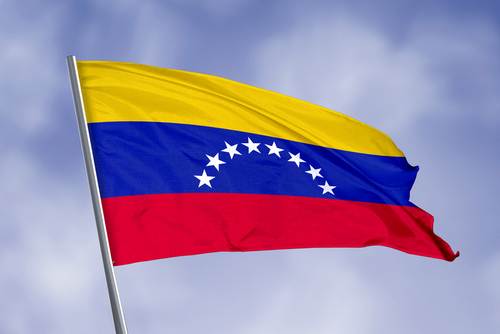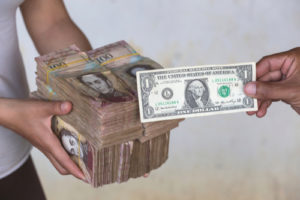
Nicolas Maduro may be lounging comfortably in the Miraflores Castle in the north part of Caracas’ urban sprawl.
However, the nation he rules with an iron fist is mired in economic stagnation.
The nine years of Maduro’s rule (he won his first election by one percentage point in 2013) have been nine squandered years for Venezuela and its citizens.
Political and Economic State
Fundamentally, Venezuela became an authoritarian state a long time ago, with Maduro and his party firmly in control of all government levers. Fiscally, the South American country is in shambles.
The GDP is falling every year since Maduro took power (at his State of the Union speech in January 2022, Maduro claimed Venezuela’s GDP expanded by 4 percent from 2018).
Roughly six million Venezuelans have fled the nation. Per a United Nations poll in 2020, over nine million Venezuelans, or one-third of the population, are “food insecure.”
A top adviser to President Joe Biden dismissed calls for the US to unilaterally lift sanctions against Venezuela https://t.co/iwzj0ooGk4
— Bloomberg (@business) May 19, 2022
Washington has long viewed Venezuela as a massive disaster. Multiple U.S. administrations believed the remedy was to penalize Caracas for human rights violations, topple Maduro, and replace his rule with a return to democracy.
In 2014, the Obama administration initiated human rights sanctions against the Venezuelan government.
The Trump administration applied maximum economic pressure on Venezuela, sanctioning its oil industry (Venezuelan crude exports fell by roughly 70% between 2017 and 2020), cutting Venezuela off from US banks, and even convicting Maduro for drug trafficking.
None of these resulted in Maduro’s removal from office or an internal revolt against his administration. Nevertheless, the sanctions did make Venezuela poorer and the lives of the Venezuelan people more wretched.
The United States is altering its attitude gradually. Beginning in early March, senior U.S. officials traveled to Caracas for their first high-level meeting with Maduro regime leaders in years.
Although no agreements were reached, the visit broke the ice. A few days later, Venezuela promised to maintain clear channels of communication and released two American inmates.
In the week, the Biden presidency took another step, permitting Chevron, the only major American oil corporation currently functioning in Venezuela, to begin operations conversations with PDVSA, Venezuela’s state-owned oil company.
While Chevron is still unable to do business with Venezuela’s oil industry, the sanctions reprieve sends a message to Caracas.
Washington is willing to negotiate a more complete relaxation of sanctions if free and fair presidential elections take place in Venezuela.
Lifting sanctions on Venezuela and Cuba empowers their brutal regimes and hurts their innocent citizens. What we're seeing is Obama 2.0. Biden needs to learn that appeasing dictators never works.
— Nikki Haley (@NikkiHaley) May 18, 2022
Peace Talks
The sanctions waivers are part of a “highly tuned approach,” according to U.S. officials speaking off the record to reporters.
U.S. economic concessions are closely tailored to whatever concessions Maduro is prepared to provide.
This week, after a months-long hiatus, it is expected Maduro and the resistance coalition led by Juan Guaido, whom the United States still sees as Venezuela’s legitimate president, will resume peace talks.
The sooner oil production begins, the more money the Venezuelan government has to pay off its military loyalists.
The unanswered question is whether the erstwhile bus driver-turned-Hugo Chavez protégé-turned-shrewd president is willing to proceed with fair elections and risk electoral defeat in order to do it.
















